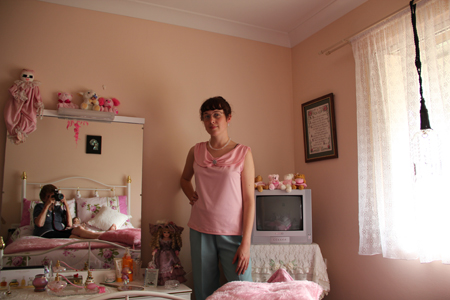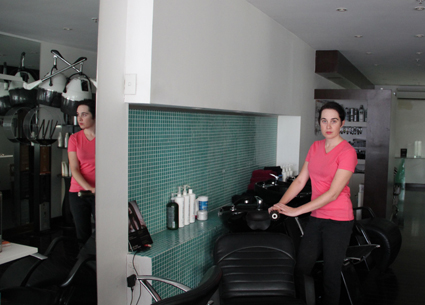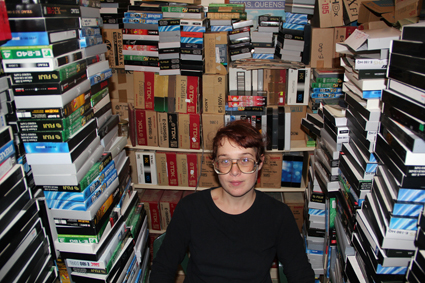the experts project
 |
lara thoms |
everyday expertiseIn The Experts Project Lara Thoms takes the idea of walking in someone else’s shoes to the extreme. She actually convinces people to let her come into their homes where she dons not only their footwear but entire outfits. The participants then document the moment with a photograph. This penultimate stage of The Experts Project is not just testament to Thoms’ charm and her powers of persuasion but also to the meaningful engagement and level of trust fostered over a series of conversations. The main aim of these chats is to draw out a particular area of expertise, occasionally revealing skills the participant didn’t realise they possessed. The final part of the process consists of a three-hour performance lecture (the audience is free to come and go) where Thoms presents her findings. The discussions with the experts are distilled into a series of lessons—a list of dos and don’ts—which Thoms reads out when each expert’s number comes up on a ‘chocolate wheel.’  The first time I saw The Experts Project was at the Tiny Stadiums festival in 2011. Thoms presented her work in a small meeting room in the Erskineville Town Hall. It was very low-key, the spinning wheel a rickety analogue affair, the portraits manually selected via computer keyboard and projected on the wall. But the audience was totally engaged, asking probing questions about each expert’s life and, surprisingly, sharing their own stories as well. For the latest manifestation at the MCA, in the brand new seminar room, Thoms has gone a little more hi-tech—the chocolate wheel is hooked up to a computer that automatically triggers the images on two flat screen monitors. The performance I attended, the audience was not so talkative, yet no less intrigued. Thoms has now gathered the wisdom of over 150 experts from her residencies in Castlemaine in regional Victoria, Melbourne, Minto in Sydney’s south west and now the MCA. The breadth of knowledge is staggering with lessons including how to conduct polyamorist relationships; host a medieval dinner party; look good on camera; slice frozen fish; and even how to enter and exit combat zones.  There is something undeniably fascinating about these micro studies, but it’s hard not to feel queasily voyeuristic. Presenting herself as each expert Thoms offers a certain level of anonymity to her participants, however there is also the potential for parody. Yet in the discussions following each lesson it becomes clear that Thoms’ intentions are above all respectful—and, let’s remember, she didn’t force them to hand their clothes over. The Experts Project is best considered as an entire process of engagement in which Lara Thoms undertakes a playful yet vigorous exploration into how surprising human beings can be, reaffirming that there’s something special in even the most quotidian activities. Gail Priest Lara Thoms, The Experts Project, Local Positioning Systems curated by Performance Space, Museum of Contemporary Art, Sydney, Seminar Room, May 6, 8, 10, 12, 13, ?1- 4.00; www.mca.com.au/events/experts-project/ Images: top to bottom - Decorative Toilet Roll Holders, by Shirley Robinson; When Hairdressing Becomes Counselling, by Ronnie Baroutha; Playing a paedophile on Australian television, by John Flaus. |
lara thoms
lara thoms interview |








 back
back